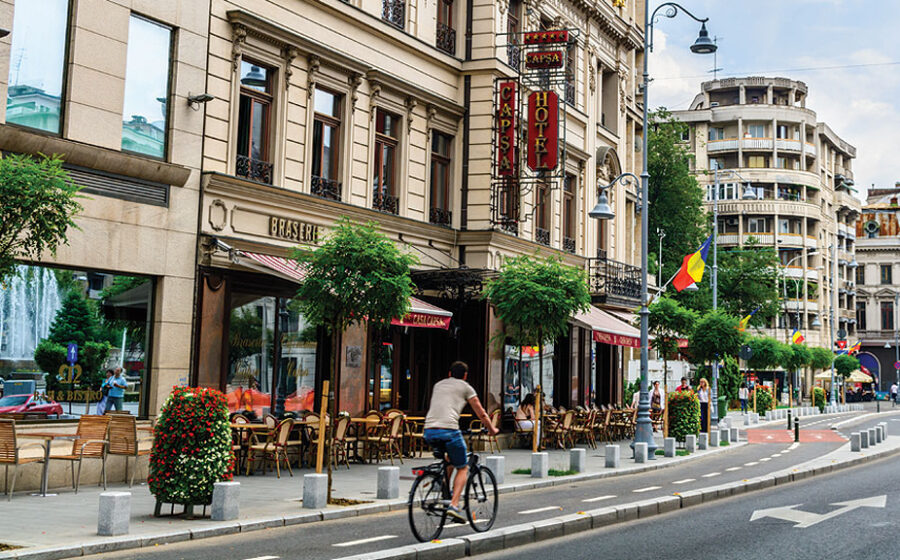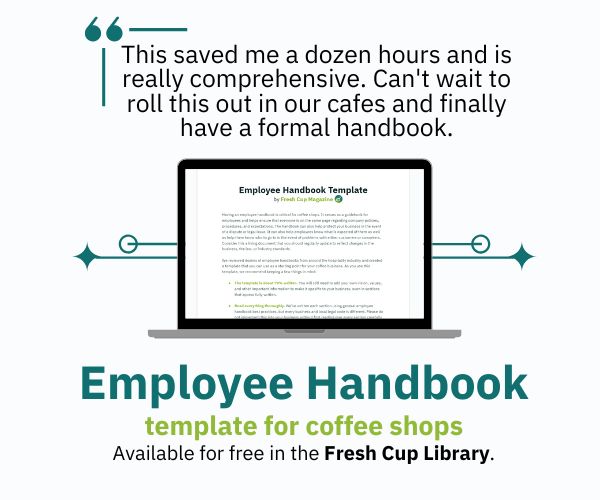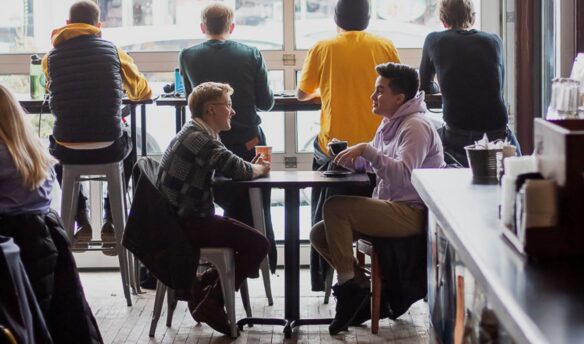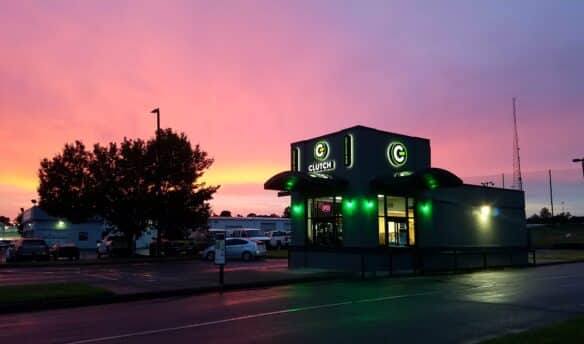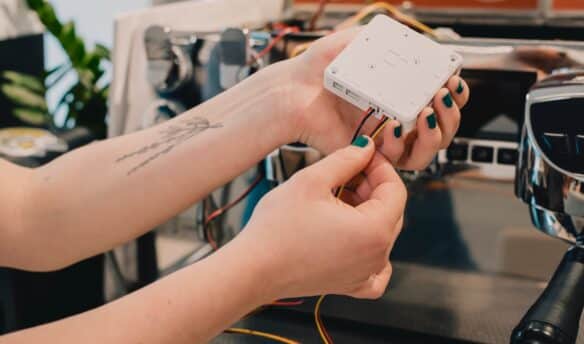[T]he elegant diagonal boulevards and mélange of lush city parks, cobbled streets, and a replica of the Arc de Triomphe once earned Bucharest, Romania, the nickname “Little Paris of the East.” A flourishing capital of culture, Bucharest was an artist’s hub, where poets, painters, and philosophers would meet for conversation at the luxurious Casa Capșa hotel.
But this blossoming society waned in the wake of World War II and Nicolae Ceaușescu’s ensuing Communist dictatorship. Bucharest faded into the gray space of the Soviet bloc.
Ceaușescu’s dictatorship finally fell in 1989, and the Romanian Revolution raged cross-country. A wave of art and style surged through Bucharest, infusing color into a city long muted by the Communist reign.
Twenty-eight years later, Bucharest today is an eclectic mix of neoclassical domed museums, art deco facades, and ragged apartments leftover from the Communist era. Artists and students fill the new cafés and flea markets, and flock to the increasingly popular specialty coffee shops.
Origo Coffee
On busy Strada Lipscani in Bucharest’s old town, clusters of customers stand outside Origo Coffee, chatting and sipping espresso in the summer sun. Even in winter, a crowd can be found outside of Bucharest’s most popular specialty coffee shop.
Mihai Panfil opened Origo in 2013 with a mission to educate Bucharest about specialty coffee and to put Romania on the coffee map. The name Origo is a nod to new beginnings and identity. “I wanted something that means the start of the coffee industry here,” Panfil says. “We are a Latin people, so I took from Latin the word origo—‘the origin.’”

The interior of the shop is simple, designed to make coffee the focus. White coffee cups hang from antique wooden ceiling beams over the bar area, which showcases the shop’s Victoria Arduino Gravitech espresso machine.
“Because specialty coffee was brand new here, the idea of the place was for the entire coffee process to be visible to clients, to see everything, to be transparent,” Panfil says.
Originally, Origo roasted its beans in-house behind a glass wall, making the process visible to customers. The roastery has since relocated due to growing customer volume and the accompanying need for more space.
Behind the counter, chalkboard walls advertise a simple menu and information about each drink. One chalk panel informs customers that sugar is available upon request, but asks that they try the coffee without it first. “Our goal working here,” says lead barista Lavinia Toma, “is to show people what specialty coffee is, and that it might be a little different than what they are used to.”
Each Origo customer is greeted, then served tableside, guided through the menu by knowledgeable staff members. Anca Arhip, also a lead barista, elaborates: “I think it’s very important to have good coffee, but it’s nothing if you make a good coffee and don’t know how to present it to someone. So the coffee is important, but hospitality also means a lot.”
This focus on hospitality and education is especially pertinent in Bucharest, stemming from times when Ceaușescu’s economic policy made importing coffee nearly impossible. Romanians instead drank nechezol, the nickname for a coffee substitute composed of only 15 percent coffee and 85 percent grains.
Coffee culture began its resurgence in 1990, when Romanians began to travel and seek work in Italy.
“Before 1989, there was no coffee culture,” Panfil says. “From what I know, until 1990 there were only four or five professional espresso machines in the country. People didn’t know anything about coffee, they had no education on how coffee should be or taste.”
Panfil’s hard work is paying off. He says their roastery is now receiving orders from outside Romania, from places including Hungary and the Czech Republic, and their coffee is in such high demand in Bucharest that they will be opening a second location next year.
Toma and her colleagues have competed in the World Brewers Cup, and Arhip placed at the 2016 World Barista Championship. “All the coffee exhibitions and competitions, we are there,” Panfil says. “It’s a lot of effort, but it’s important to stay connected.”
Coftale
Nestled in a stately house outside Bucharest’s city center is Coftale. Owner Antonio Iftimescu opened the shop in December 2012 with his sister, Rocsana Dobre. Their goal was to create a coffee experience reflective of Bucharest’s culture.
“I think people in other countries sometimes think of Romania as a Communist country, but that was back then. In my vision, Bucharest is a mixture of old and new,” Iftimescu says.
Coftale’s interior is cozy and spacious, with high ceilings, ornate crown molding, and a sleek, modern bar. The space is light and airy, hearkening back to Bucharest’s “Little Paris” days.
Iftimescu’s interest in specialty coffee began years ago in Berlin, Germany, when a barista there made a heart in his cappuccino. “That made me curious,” he says. “What is that heart in the middle? And why doesn’t it need sugar? I wasn’t a coffee drinker back then, so I used to put a lot of sugar in my coffee. It was like ‘Whoa, no sugar for this coffee.’ It was perfect.”
When Iftimescu returned to Romania, he resolved to learn more about specialty coffee. He found a beginner’s course through the Specialty Coffee Association of Europe (SCAE) and fell in love. “The idea for a specialty coffee shop just popped. It was like, ‘Let’s try this.’” But, like Panfil, he knew the process would involve education. “For people in Bucharest who are new to specialty coffee, it could seem like the barista disappears behind a counter and comes out with a coffee. We wanted the process to be transparent.” Iftimescu made his Kees van der Westen Spirit easily visible to customers, so they feel like they’re pulling up a chair at a kitchen table.
“This is a place where people can connect with the barista and with each other,” he says. “That’s why it’s called Coftale. We’ve made a tale, a story about coffee in Bucharest.”
Iftimescu promotes local business whenever possible. He sources beans primarily from Origo and Bucharest-based roasters Papa Jacques and Guido, and from Yume Coffee Roasters, a roastery in Cluj-Napoca in northwestern Romania. His future plans include roasting his own beans and continuing to attend coffee events such as the Berlin Coffee Festival and next year’s World of Coffee event. He wants to further his own education and assert a Romanian presence at these events.
Iftimescu’s passion for specialty coffee and education is paying off. More and more Romanians are foregoing home brews and stopping by Coftale for their morning cup. “When we talk about coffee, we put our heart into it,” Iftimescu explains, “and that resonates with people.”
T-Zero
Besides education, networking has played an important role in expanding Bucharest’s specialty coffee scene. Take, for example, Ciprian Cosma, who opened T-Zero Coffee Shop after a friend and coffee shop owner introduced him to specialty coffee.
“I wanted to learn about it,” Cosma says, “and he told me to go to Origo.”
Now, over a year after T-Zero’s opening, Cosma maintains connections not only with Origo, who supplies coffee to the café, but with other shop owners throughout Bucharest. “We have started a community,” he says. “We send clients to one another. We are trying to grow.”
Cosma recently opened a second T-Zero shop. Together with artist and friend Romulus Boicu, Cosma designed and constructed the interior of his shop—from the teal walls to the rustic wood plank–lined walls and counter. “We did absolutely everything,” he says. The result is an eclectic interplay between the earthy touches and Boicu’s contemporary scrap metal sculptures.
Owning two shops has allowed Cosma to experiment and learn. His original shop is home to a Nuova Simonelli Aurelia II and an Anfim Super Caimano grinder, whereas he chose a Victoria Arduino VA358 White Eagle and Nuova Simonelli Mythos One at his newest shop. “Working with the machines, working with the coffee—that’s the best school,” Cosma says.
Beyond Bucharest
Specialty coffee is also growing outside Romania’s capital. The town of Cluj-Napoca, located 280 miles northwest of Bucharest, is home to many specialty coffee shops, and in smaller cities, shops are just beginning to open.
In Iași, Romania, a specialty coffee and barista school opened this February. Scoala Moldoveneasca de Cafea, which translates to “Moldavian Coffee School,” is the first independent coffee school in the Moldavian region. The main trainer is Laurentiu Stefan, a two-time national barista champion with additional international accolades. Stefan will work alongside a team of two other trainers to educate coffee drinkers and baristas alike.
“The goal of the school is to teach people about quality coffee and how to prepare and enjoy it,” says Carmen Manea, the school’s public relations manager. The school will train baristas not only for their work in specialty coffee shops throughout Romania, but also for championships. Manea hopes that increasing access to education in areas outside Bucharest will lead to greater availability of specialty coffee throughout the country.
Coffee shop owners and baristas across Romania know and support one another. “It’s not a competition with us,” Origo’s Panfil says, “because if there are more options, the winner is really the client.”
Coftale’s Iftimescu agrees that the more options, the better: “Coffee is personal. If you go to one coffee shop here, you might try coffee from Guatemala. You can try another shop later, try something different. That’s a good thing. You start to think about what you like and the origins of what you’re drinking. It creates a little community.”
This community of specialty coffee shop owners, baristas, and consumers pushes everyone to continue improving their methods and increases the general knowledge of and interest in drinking specialty coffee in Bucharest.
Shop owners and roasters are hopeful that putting Romania on the specialty coffee map will also help paint a more positive image of Romanian culture and lifestyle in general.
Summarizing Romania’s rebirth and rising specialty coffee scene, Panfil says, “We started very late, but are recovering very fast.”
—Shannon Kelly is a freelance writer and editor based in Galway, Ireland.

